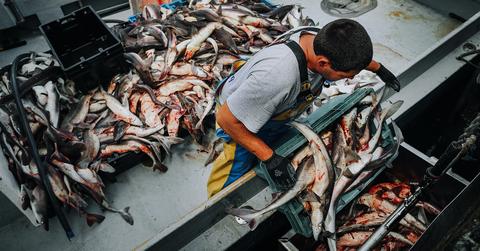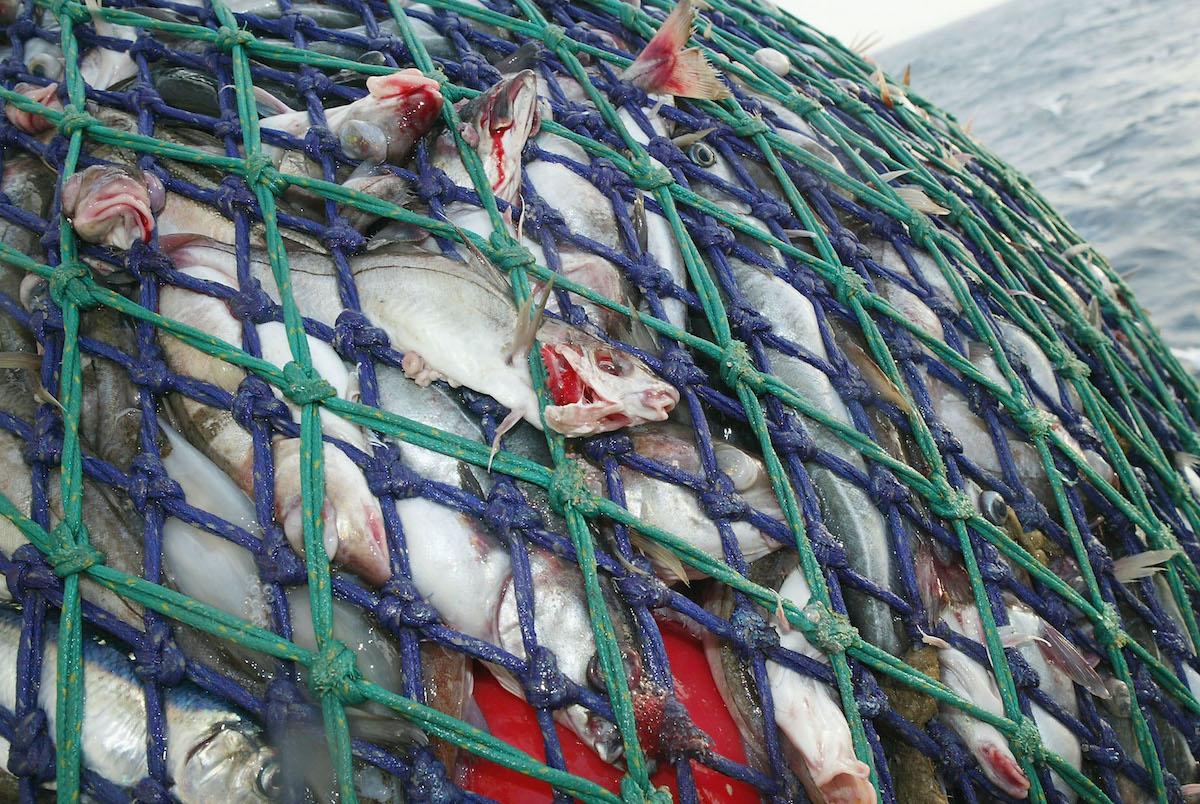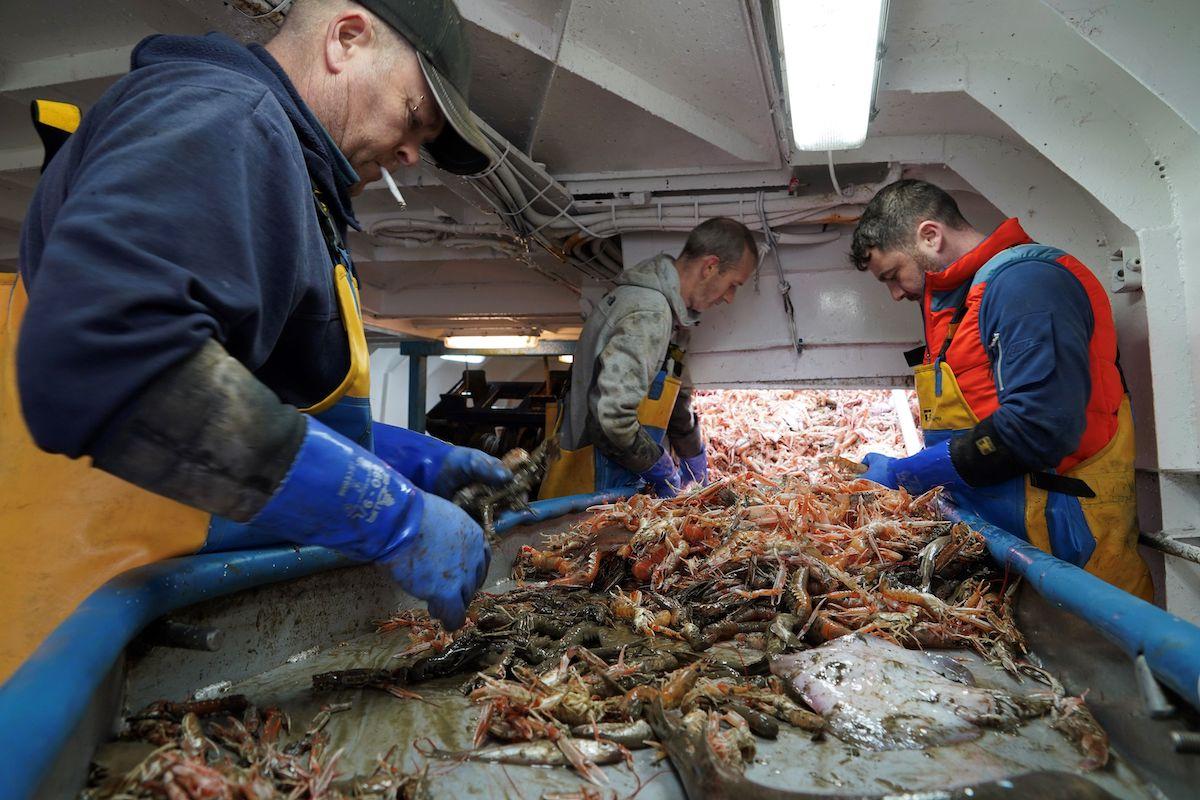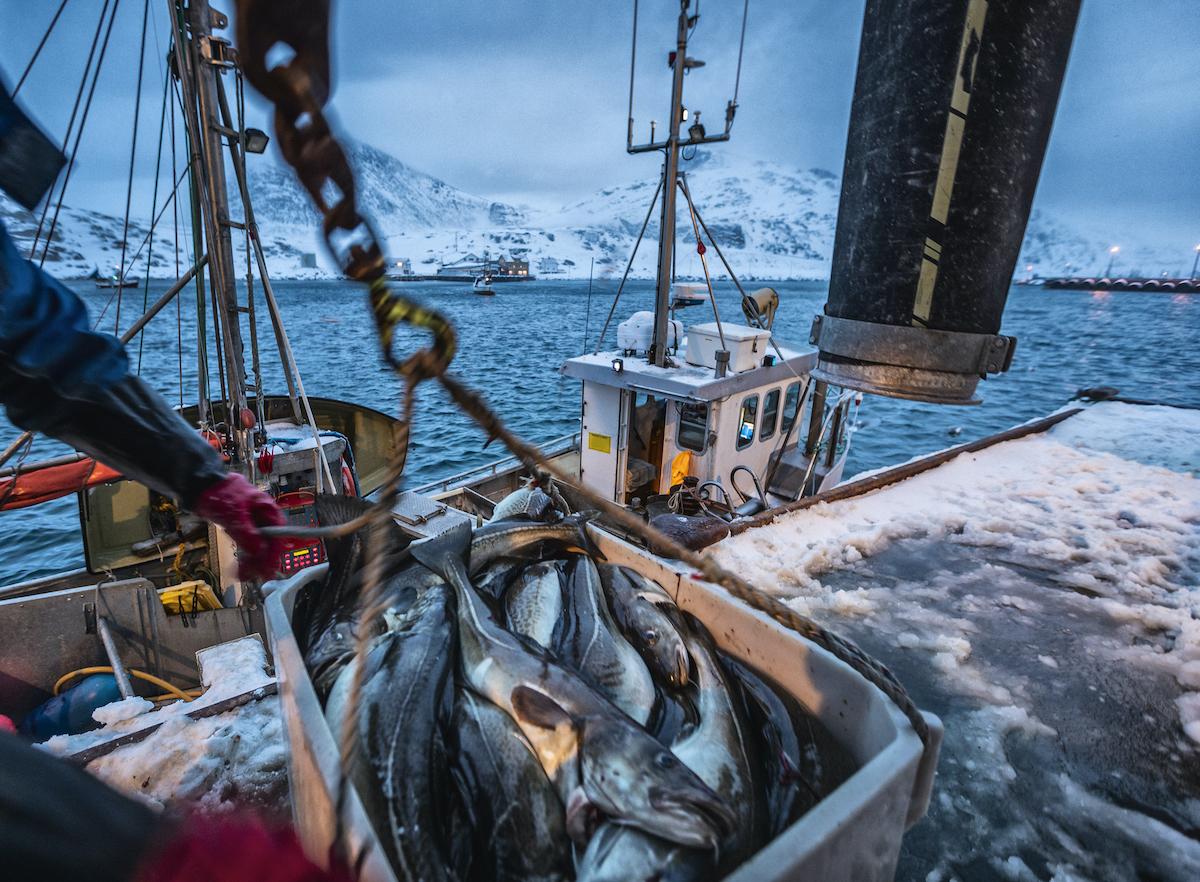What Does Sustainably-Sourced Seafood Actually Mean?
Here's everything you need to know.
Updated Jan. 6 2023, 3:32 p.m. ET

Overfishing is warming the world’s oceans, depleting fish populations, and even leading some scientists to predict that we will have more plastic than fish in the ocean by 2050 — meaning now is a critical time to look at the human consumption of sea animals.
In recent years, certifications such as “sustainable seafood” or “sustainably-caught seafood” have risen in popularity. But the long list of problems in the fishing industry are enough to make any environmentalist wonder: What does sustainable seafood actually mean? Is sustainable seafood really that much better for the environment? And is there a way to actually eat sea animals sustainably and ethically, or is sustainable seafood just a form of greenwashing, aka a marketing term to make customers feel better about eating aquatic animals?
Read on to learn exactly what sustainable seafood means, for everything you need to know about the industry that kills more than a trillion fish every year, and for some of our favorite sustainable, plant-based alternatives to eating seafood.
What is seafood?
Seafood refers to any aquatic animal who humans kill to eat. This primarily includes various species of fish (such as tuna, salmon, trout, and mackerel) and shellfish (such as lobster, shrimp, clams, and mussels).
Most fish are caught from the ocean using trawling methods, which use large nets to collect sea animals — unfortunately, this process is inherently unsustainable, as it results in unfathomable amounts of plastic entering the oceans, and it almost always results in bycatch.
What is bycatch?

Bycatch is when trawling nets (massive nets that boats — often boats the size of football fields — pull through the ocean) incidentally catch non-target marine life, such as sea turtles, sea birds, dolphins, porpoises, whales, sharks, and juvenile fish. Animals caught as bycatch typically wind up dead, either due to getting tangled in fishing nets, or drowning to death after being pulled out of the water, according to NOAA. Fishermen then throw the bycatch bodies back into the ocean, typically dead or dying.
It’s estimated that as much as 40 percent of global marine life catch is bycatch, according to Oceana. It’s also estimated that trawlers can catch up to 20 pounds of bycatch for each pound of fish. Even as fishing technologies have evolved over the years, bycatch remains a significant issue and threat to oceans, according to the WWF.
What is sustainable seafood?
When seafood packaging claims its contents are certified sustainable, it means that the fish were declared as sustainably caught by either an organization, private company, or government agency. The requirements to get a sustainable seafood certification from the varying entities differ.
For example, according to NOAA, for seafood to be considered sustainable by law in the U.S., the fishery management plan is supposed to: “Consider social and economic outcomes for fishing communities, prevent overfishing, rebuild depleted stocks, minimize bycatch and interactions with protected species, and identify and conserve essential fish habitat.”
Basically, “sustainable seafood” means the fishery claims to be making efforts to kill fish in a manner and rate that our oceans can maintain.
However, it’s important to remember that like any other industry, the fishing industry exists primarily for economic reasons — most major fisheries are probably more concerned with making a profit than they are with protecting the oceans. If protecting the oceans was a top priority to these companies, then they would do more than simply alter their fishing practices to be just a little bit more sustainable — they would stop commercially fishing entirely.
What are some sustainable seafood labels or certifications?

A few popular sustainable seafood labels include the Marine Stewardship Council (MSC), the Aquaculture Stewardship Council (ASC), the Monterey Bay Aquarium’s Seafood Watch, Naturland, and Best Aquaculture Practices. Each group has different standards for fisheries to qualify to use its label on packaging, so you can check out their websites for more information on how they evaluate fisheries.
Spending more money on fish with these logos on their packaging may feel like a positive choice — but remember that there’s no right way to do the wrong thing. The 2021 documentary Seaspiracy investigated the popular Dolphin Safe label, which many customers look for when purchasing tuna. According to the film, the label is basically just a marketing strategy — one former Dolphin Safe employee even called the company a "fraud."
Does sustainable seafood really exist?

But with fish populations declining in concerning ways, what gives humans the right to take fish from the oceans at all? If humans drastically reduced the rate at which they commercially take fish from the oceans, we could help restore marine biodiversity, stop the oceans from warming, and mitigate the climate crisis. But instead, the fishing industry makes consumers feel better about doing something unethical and unsustainable by slapping a “sustainable seafood” logo on it.
A 2013 poll conducted on behalf of NPR surveyed 3,000 Americans about seafood purchasing habits. It found that nearly 80 percent of those surveyed who regularly eat sea animals consider it important their seafood is caught sustainably; about 50 percent of people said they would pay at least 10 percent more money for fish if it was caught sustainably.
Even though some fisheries might be catching fish in considerably more sustainable ways than others, killing animals for food is an inherently unsustainable process. The most sustainable choice of all would be to eat plant-based foods instead of fish. A 2018 landmark study out of the University of Oxford found that a vegan diet is the single most significant lifestyle choice individuals can make to benefit the environment — so if you are concerned about the environmental footprint of your diet, consider eating a more plant-based diet instead of swapping your seafood out for “sustainable seafood.”
And on top of the sustainability issues behind eating fish, there are also ethical and health issues. Fish can feel pain just like land animals, such as dogs, cats, cows, pigs, and chickens. Once caught, fish are typically left in trawling nets or tossed onto ice where they will slowly freeze or suffocate to death. Not to mention, even though fish are often praised for being nutritional powerhouses, fish contain cholesterol, mercury, other pollutants, and even plastic. With so many other foods out there, people who have the privilege to choose their food do not need to eat fish.
Plant-based seafood is a delicious, sustainable alternative to eating fish.
One of the most significant spaces where people can lower their environmental impact is their diets — and trying plant-based seafood is a great place to start. Fortunately, there are endless vegan fish products on the market, and they have come a long way! Some of our favorite companies making plant-based seafood include Lily’s Vegan Pantry, Good Catch, Sophie’s Kitchen, and Gardein; additionally, vegan meat giant Impossible Foods is developing a fishless fish product, which should be a game changer. Plus, vegan food blogs are filled with recipes for plant-based fishy meals.
This article, originally published on July 2, 2020, has been updated.